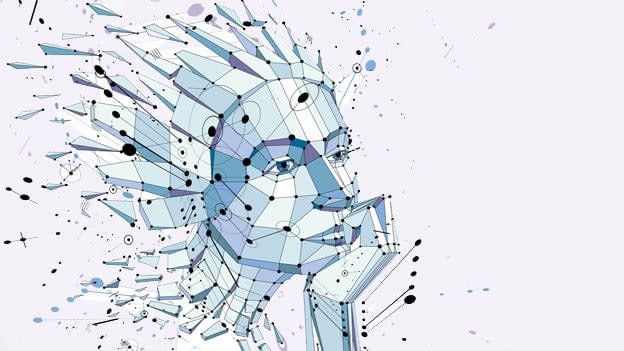Here’s what digital disruption looks like in 2022 – and how you can harness it

If you thought the world of work evolved dramatically in 2020 and 2021, wait until you see what this year has in store.
In the coming months, connectivity will improve and game-changing technologies including artificial intelligence and virtual reality will mature, allowing organisations to operate in entirely new ways.
At the same time, our priorities at work and at home will continue to change as we collectively get to grips with a ‘new normal’ in the post-COVID era.
Already, many organisations are formalising the hybrid work practices they first adopted in 2020. As the “war for talent” continues, hybrid-work policies will become central to the employee value proposition.
But the year ahead won’t just bring about changes to the where and when of work.
For open-minded organisations, digital disruption will also present opportunities to improve the hiring process, strengthen stakeholder relationships, and turbo-charge productivity.
Digital disruption: what are the key trends?
The rapid roll-out of 5G infrastructure is not a revolution in and of itself. But the improved internet speeds and network capacity that 5G provides, will unlock the full potential of existing protocols, from video conferencing to cloud-based work.
Improved connectivity will also allow customer-facing companies to fully commit to online service models. And, for HR, it will unlock new ways of interacting with employees and candidates.
As key functions – from hiring to customer care – relocate to the digital realm, companies will find themselves in possession of more data than ever before.
At the same time, a new generation of AI and machine learning applications will give organisations the means to better analyse this data and get insights from it.
AI also has a role to play in shaping the meetings of tomorrow. AI-powered transcription and translation features will minimise language barriers between employees during virtual meetings, empowering them to speak up – and out. The ability of AI systems to see, talk and hear will make communication easier, more immersive and more inclusive.
AR/VR technology will come to the fore, too, helping to drive equal participation during hybrid meetings by allowing each in-person attendee to be featured just as prominently as remote attendees with their own dedicated video streams. AR/VR technology will sit at the centre of the new conferencing room experience, enabling features like auto-tracking cameras, speaker focus and even people counting for attendance.
Meanwhile, the Total Experience, a concept which emerged last year, is likely to take shape in 2022, again fuelled by improved connectivity.
The total experience is a new way of framing how organisations interact with customers. Using a seamless blend of in-person and online connections, companies will soon be able to offer a hybrid experience that’s far more satisfying than either mode on its own. 5G’s fast speed and low latency will make the total experience possible for organisations of all shapes and sizes.
Navigating culture and technology changes in 2022
The role that human resources professionals play within organisations has expanded significantly since the pandemic began, and ongoing digital disruption means the HR function will be even more important in the months and years ahead.
Crucially, it will fall to HR to ensure that these new technologies and ways of working serve to strengthen, rather than fragment, the teams within their organisations
The good news is that employees are ready for change. New research by PwC shows that 74% of Australian workers now want to move to hybrid working permanently. In fact, 29% would consider quitting if forced to abandon remote work.
To make the transition beneficial for employees and employers alike, HR should advocate for new education and training programs, so that even the least tech-confident of their workforce can thrive.
You can address varying levels of computer literacy within your workforce by offering tiered education and training, so that those who need additional help get it.
Remember, too, that the move to hybrid work may necessitate new management approaches.
At Zoom, we plan to train and enable managers to manage dispersed teams, with a goal of ensuring all employees are treated equally and receive the same career development opportunities.
Keeping your people connected and supported, no matter where they’re working from, will make navigating digital disruption considerably less complicated for your organisation and its staff.
How HR can innovate in 2022
This year, open-mindedness and a willingness to try new methods and approaches will be key – particularly for those organisations hoping to on-board workers.
As the war for talent continues, those organisations that embrace progressive hiring processes and promote employee choice and flexibility to work from anywhere, stand the best chance of impressing top applicants and retaining top talent.
This could mean offering video-based interviews as standard for the time-poor, or creating content-rich online destinations that ‘sell’ your organisation.
Many applicants now expect different workstyles to be woven into EVPs as standard, but by empowering them to make their own choice about how they want to work, you can still create a value proposition that stands apart in this regard.
Data will provide opportunities to innovate, too. Forward-thinking HR professionals will collect and synthesise data on when and how their employees are working, whether remote or office-based. Those insights could reshape organisations for the better.
Additional possibilities are bound to pop up before the year is out. The best way to take advantage of them? View digital disruption as an opportunity, not a challenge.
















